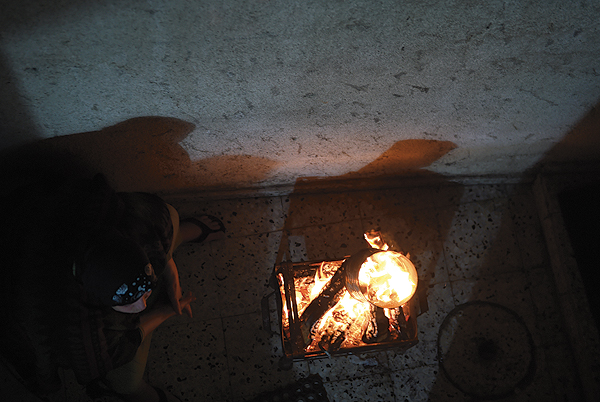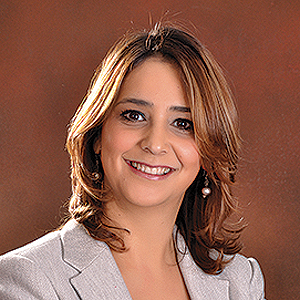The Palestinian Maintenance Fund empowered me and restored my dignity after years of battles. Let him handle the financial burdens, be in debt to the state, hide from police cars, and feel the pain and injustice he had inflicted on me.”
Accountability and protection are two crucial, interrelated points for beneficiaries of the Palestinian Maintenance Fund (PMF) who are seeking access to justice. PMF has been legally mandated to cover maintenance cases that are not dealt with at family courts where maintenance cases are generally allocated payment entitlements and duties. Maintenance is considered a “public fund of higher privilege” by the law that holds the liable parent responsible for filling the maintenance rights of their wives and children, as well as relatives and parents who are disabled, unable to work, or need maintenance. Maintenance plays a crucial role in the personal-status cases of a significant segment of the community, and it serves beneficiaries who are in dire need of financial support. Acknowledging this situation, the legislator has given such cases preferential urgency, e.g., the enforcement of family court decisions regarding maintenance is by law considered to require immediate action; it does not need to wait for the normal litigation procedures that can prolong enforcement while the cases are before the courts.

PMF plays a vital role in following up on the enforcement of maintenance and child support payments from parents who are delinquent due to reluctance towards or evasion of payment as a result of judgment, travel abroad, or the lack of a clear residential address. As an external, public-sphere power that has sufficient mandate to intervene within the private sphere, PMF obliges delinquent parties to pay maintenance by exercising lawful authority powers on those convicted. It operates by enforcing imprisonment orders and travel bans, and by seizing assets through legal action in partnership with the courts, the police, the monetary authority, the ministries of interior, economy, transportation, and local governance, the land authority, and other official bodies. These partnerships underpin the effectiveness of PMF in claiming the resources to which vulnerable parties are entitled. However, such enforcement does not always run smoothly. In many cases, convicts become enraged by the fact that a public body of authority is intervening in their own private lives.
♦ According to Shari’a law, maintenance is defined as “the sufficient provision of the ordinary needs for food, clothing, housing, and utilities.” Based on the Jordanian Personal Status Law of 1976, wives, children, parents, and relatives are entitled to receive maintenance.
Therefore, PMF operates with a comprehensive understanding of protection that goes beyond monthly maintenance payment. It utilizes an integrated approach that aims to fill the practical, economic, legal, psychological, and social-services needs of beneficiaries, thus sparing them the humiliation of hardship and destitution. Furthermore, it raises the voices of beneficiary groups and maintains their representation in the plans, policies, programs, and activities of both formal and informal institutions. PMF partnerships include, in addition to the abovementioned, the ministries of health and social development, and civil society institutions, as well as private-sector institutions and individuals in order to enable beneficiaries to expand their choices and control.
Ensuring accountability and protection has re-established a sense of dignity with all beneficiary groups, especially women. PMF has managed to exercise influence and control over current or former husbands on behalf of women who had been vulnerable for prolonged periods, at the mercy of their husbands’ states of mind and lack of responsibility towards them and their children. Thus, the fund has managed to retain women’s dignity despite the psychological, social, and economic hardships that they face when living with the stigma of being a divorcee or deserted wife in an Arab-Palestinian society that paints women as the reason behind divorce or desertion or considers them to be prey that is easily manipulated because they carry the burden of having to support their children and meet their basic needs. A number of developmental and social institutions do not include on their agendas any vision to support these marginalized women, justifying their lack of action by the fact that the current or former husbands are still alive.

Maintenance enforcement is at best achieved in 18 percent of cases, which means that 82 percent of cases are not enforced, the majority of which involve children. The process of seeking justice for persons who are entitled to maintenance is made difficult by a number of complex issues, some of which are due to a patriarchal grip on vulnerable groups within the private space of Palestinian society and exacerbated by unfair policies and legislation. Living under an occupation force that controls rule of law and deprives the state of capable law enforcement tools and bodies adds to the difficulties, affecting predominantly persons who live in Area C, holders of Israeli identity cards (as the State of Palestine has no sovereignty over Israeli ID card holders who are considered outside the mandate of the Palestinian law), and foreign women or men married to holders of Palestinian IDs. Further challenges relate to human and material resources. Even though the law stipulates immediate action in maintenance cases, the reality is different and long litigation processes stretch the financial capabilities or do not take into consideration the privacy of women and family in many cases; court clerks frequently consider women inferior; lawyers request high fees; free-of-charge legal aid is not provided in personal-status matters such as a divorce case; a general weakness in the enforcement of court decisions prevails; and a civil registry with demographic information on citizens and their properties (movable and immovable) is lacking. These factors work in favor of persons who want to evade their responsibilities and flee justice, and hinder the ability to prosecute convicts by law.
♦ Women are attaining their fair rights of maintenance and respect. Becoming aware of their legal and economic rights has empowered many of them to negotiate and change their life conditions by challenging the obstacles they face and making better life choices. Beneficiaries have used this knowledge and status as a bargaining tool to get their divorce papers. These women now stand on a higher pedestal than their current or former husbands.
The effort of guaranteeing the dignity and preventing the destitution of marginalized groups requires more than the building of effective partnerships or efforts to contribute to legislation and policies. For instance, a civil registry within an integrated national system of accountability should be developed in order to ensure that nobody evade court decisions, particularly regarding maintenance payments. PMF is looking forward to building further partnerships to better provide legal aid and representation, and ensure that the rights of marginalized groups are protected; in particular, for individuals who face difficult circumstances that otherwise would prevent them from seeking justice. PMF engages in the relentless pursuit to provide services that enable beneficiaries to participate in public life and expand their options to build a future with their children, in spite of the occupation and the control exerted by a patriarchal culture.
» Fatmeh Muaqqat is a lawyer and feminist researcher in gender studies with a master’s degree in law, women, and development from Birzeit University. She represents the State of Palestine at the legal unit in the Arab Women’s Organization, co-founded the Palestinian Maintenance Fund, where she currently serves as general manager, and has championed and lobbied for the adoption of numerous laws and measures to combat violence against women in the State of Palestine.
» The Palestinian Maintenance Fund (PMF) works to assure legal, economic, and psychological safety for marginalized groups. It carries out its responsibilities as a public institution of political will in accordance with international treaties to which the State of Palestine has acceded, namely the Convention on the Elimination of All Forms of Discrimination against Women (CEDAW) and Security Council Resolution 1325. PMF operates as a financially independent institution and applies complex bureaucratic procedures to ensure that the payment of maintenance for beneficiaries is sustainable, thus guaranteeing their dignity and preventing destitution.
Translated from Arabic by Alice Yousef.


